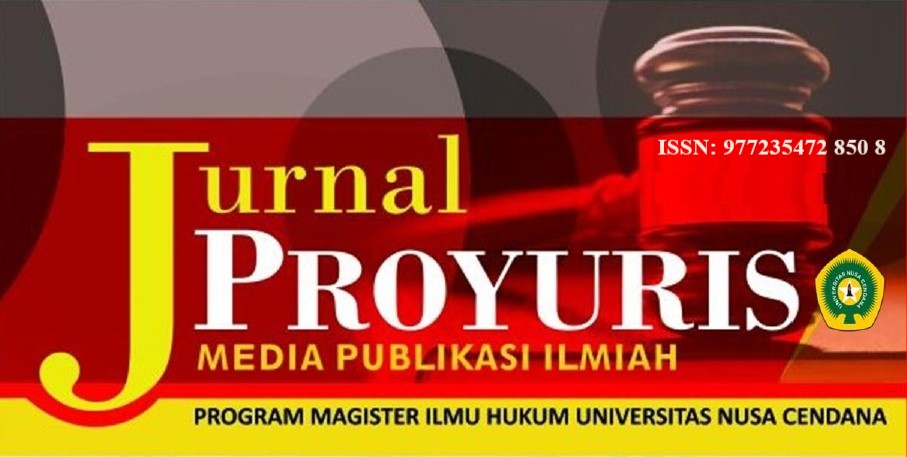PENERAPAN DELIK KORUPSI PADA KEGIATAN USAHA BANK YANG MERUGIKAN KEUANGAN NEGARA (STUDI KASUS PUTUSAN PENGADILAN NEGERI BANDUNG NOMOR 82/Pid.Sus-TPK/2019/PN.Bdg DAN PUTUSAN PENGADILAN NEGERI OELAMASI NOMOR 21/Pid.Sus/2021/ PN Olm)
Abstract
Corruption crimes in Indonesia have become widespread in society and have entered the banking sector. Regional Development Banks, which have the largest capital sourced from the Regional Government, are often the targets of criminal acts of corruption. The two cases that are the object of research are cases of criminal acts of corruption at Bank Jabar Banten Syariah causing losses to the State Finances of approximately IDR 500,000,000,000 (five hundred billion rupiah). A case with almost the same position occurred at Bank NTT Oelamasi Branch with State losses due to failure to pay approximately Rp. 6,000,000,000,- (six billion rupiah) but what was applied was a banking offense, even though the criminal act involved several people outside of it. legal subject regulated by the Banking Law. The problem is how the corruption offense is applied to bank business activities which causes state financial losses, and what are the legal consequences of applying the corruption offense in the case of granting fictitious credit to Bank Jabar Banten Syariah (BJBS) and Bank NTT Oelamasi which is detrimental to state finances. The research method used is normative qualitative research, examining the implementation or implementation of relevant statutory regulations in the case of fictitious credit at Bank Jawa Barat Banter Syariah (BJBS) and fictitious credit at Bank NTT which is detrimental to state finances in order to determine the appropriate statutory regulations. to apply. The results of the investigation and analysis of the case of Bank BJB Syariah, defendant I and defendant II who served in the Credit and Financing Division of Bank BJB Syariah and defendant AW, the corruption offense was based on an unlawful act by violating the provisions of banking law, to provide credit to defendant AW. In the case of Bank NTT, Oelamasi Branch, defendant JS violated the law and without credit analysis for his personal interests and for the benefit of witness ATE in the 2019 Governor candidacy, but what was charged against defendant JS was a banking offense. Even though the actions committed by the defendant were within the banking sphere, the subject of law, the defendant's actions were against the law, there were parties who benefited and caused harm to state finances, had fulfilled the formulation of the elements of the article for criminal acts of corruption that harmed state finances, and should be charged with the offense of corruption. The Corruption Law can be applied to the BJB Syariah and Bank NTT Oelamasi cases as Lex Specialis because even though the modus operandi falls into the area of other laws and regulations, namely the Banking Law, the defendant's Mens Rea and the elements that are more often fulfilled are the article on criminal acts of corruption. The consequences of carrying out corruption offenses can reach parties who are also responsible for the state losses incurred, as well as forced efforts to recover existing state losses.
Keywords: Corruption; Banking; State Finance.
Downloads


 Bangkit Yohannes Pangihutan Simamora(1*)
Bangkit Yohannes Pangihutan Simamora(1*)
